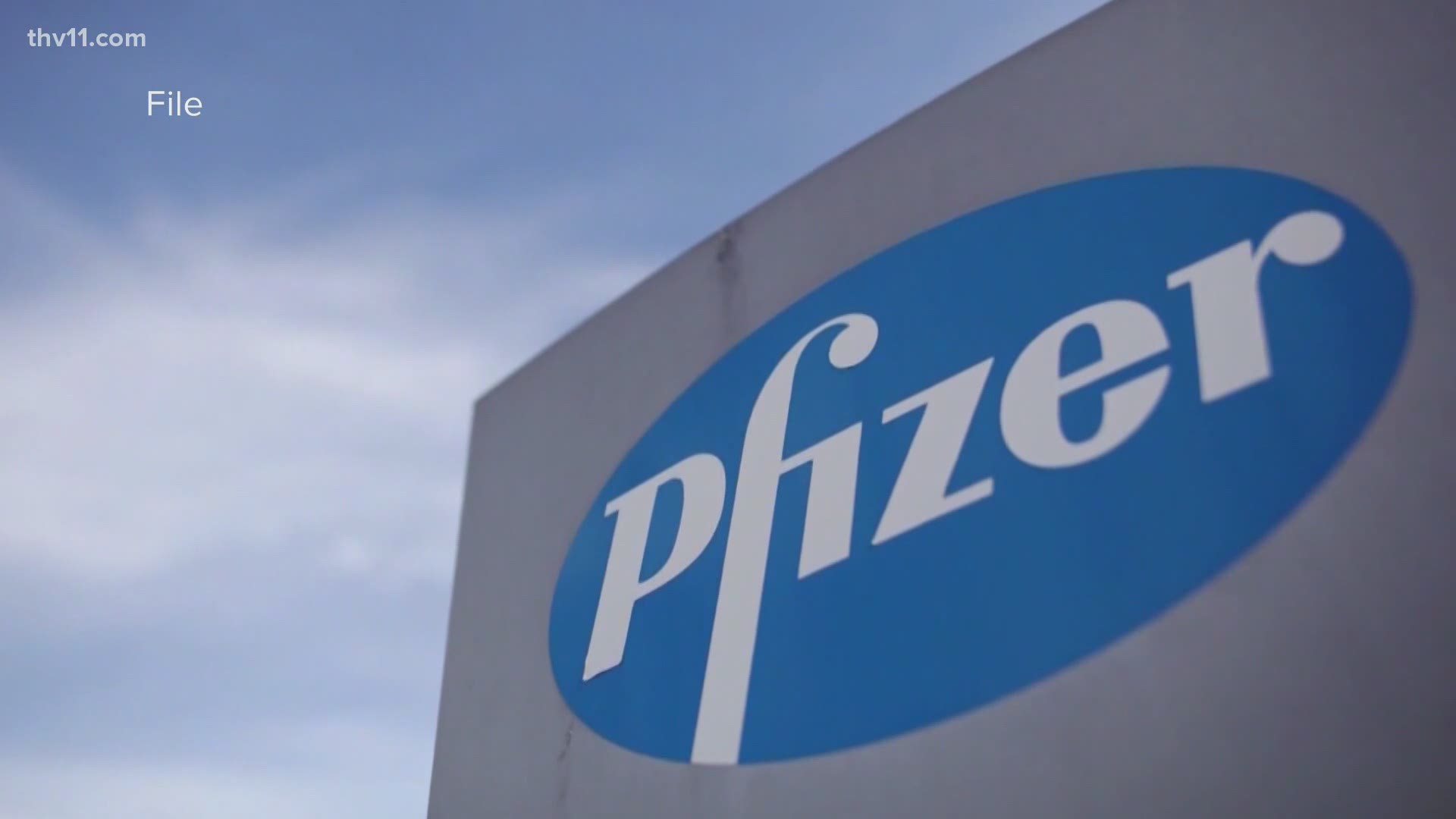LITTLE ROCK, Ark — For months now, we have heard about COVID-19 vaccine studies taking place across our country— even right here in Little Rock.
On Monday, hopeful news came.
Pfizer announced early data shows its vaccine may be 90% effective at preventing COVID-19.
While this seems like just the news we all needed to hear, Dr. Jennifer Dillaha with the Arkansas Department of Health wants to remind Arkansans while positivity is in the air, there are still a lot of steps that need to be taken.
"It's hopeful news. It's not a done deal, but people should be encouraged," Dr. Dillaha said.
The race for a COVID-19 vaccine could soon have its winner with the Pfizer announcement on Monday stating that early data shows its vaccine may be 90% effective at preventing the disease that has taken over our country.
"There's lots of considerations that will need to be put into place,in terms of planning to deploy this vaccine," Dillaha said.
So what does this mean exactly for Arkansas?
Dillaha describes it as "something to look forward to."
"A vaccine offers us hope that we will see the other side and that we will get there as a state," she said.
But before we reach that other side, there's a lot of steps in between.
According to Dillaha, the vaccine must first be authorized by the FDA and then the Advisory Committee for Immunization Practices— which advises the CDC— has to review and recommend it.
"Based on their recommendations, that will be who is receiving the vaccine first. That is who will be prioritized," she said.
After that, Dillaha said it's up to the federal government to decide how much of the vaccine Arkansas will get, which is based on our population.
"It will be the role of the Arkansas Department of Health to manage that allocation, who will get how many doses of the vaccine when," she said.
That first rollout, according to Dillaha, will be focused on those people at the highest risk of infection, like healthcare workers.
"It's going to take time for us to get the vaccine to all of the people in Arkansas who are willing to take it," she said.
Dillaha is hopeful Arkansas will receive the vaccine before the end of the year.
She said it's important to note the Pfizer vaccine requires two doses, 21 days apart minimum, which is why the time table will be slow-moving.
Dr. Dillaha wants to remind Arkansans to assume they could be infected with COVID-19 and continue to social distance, wear a mask, and stay away from crowds of people.

